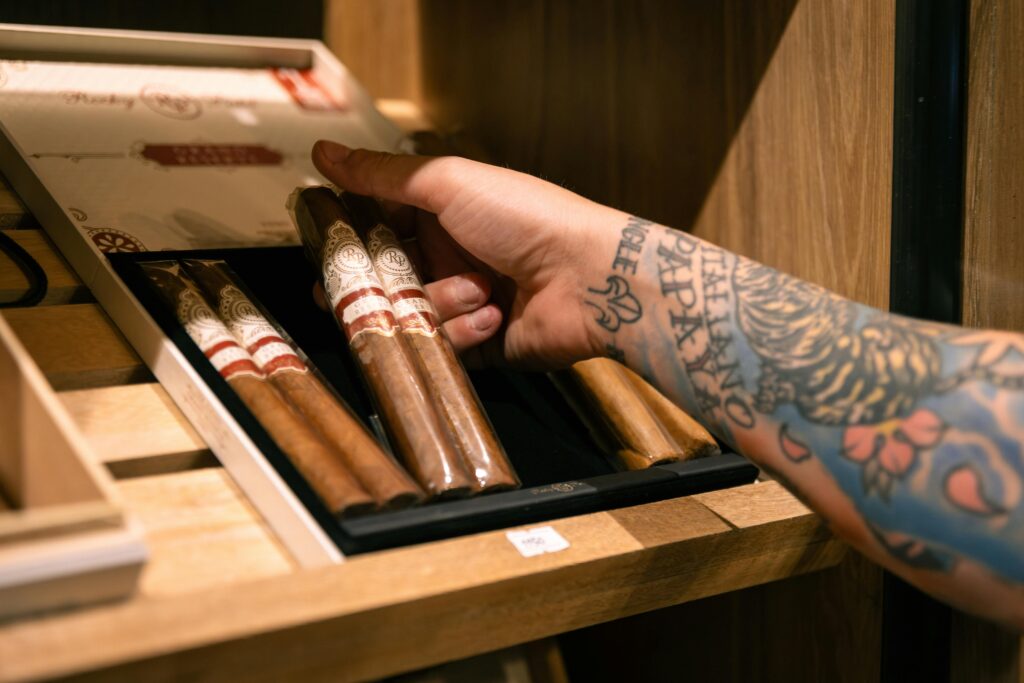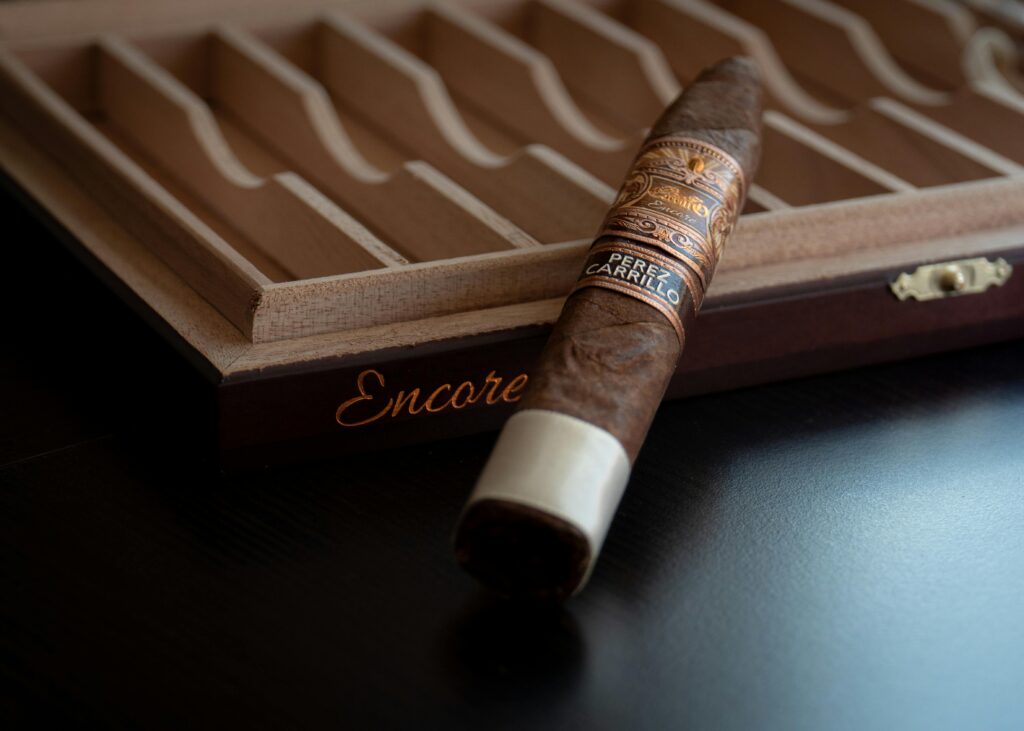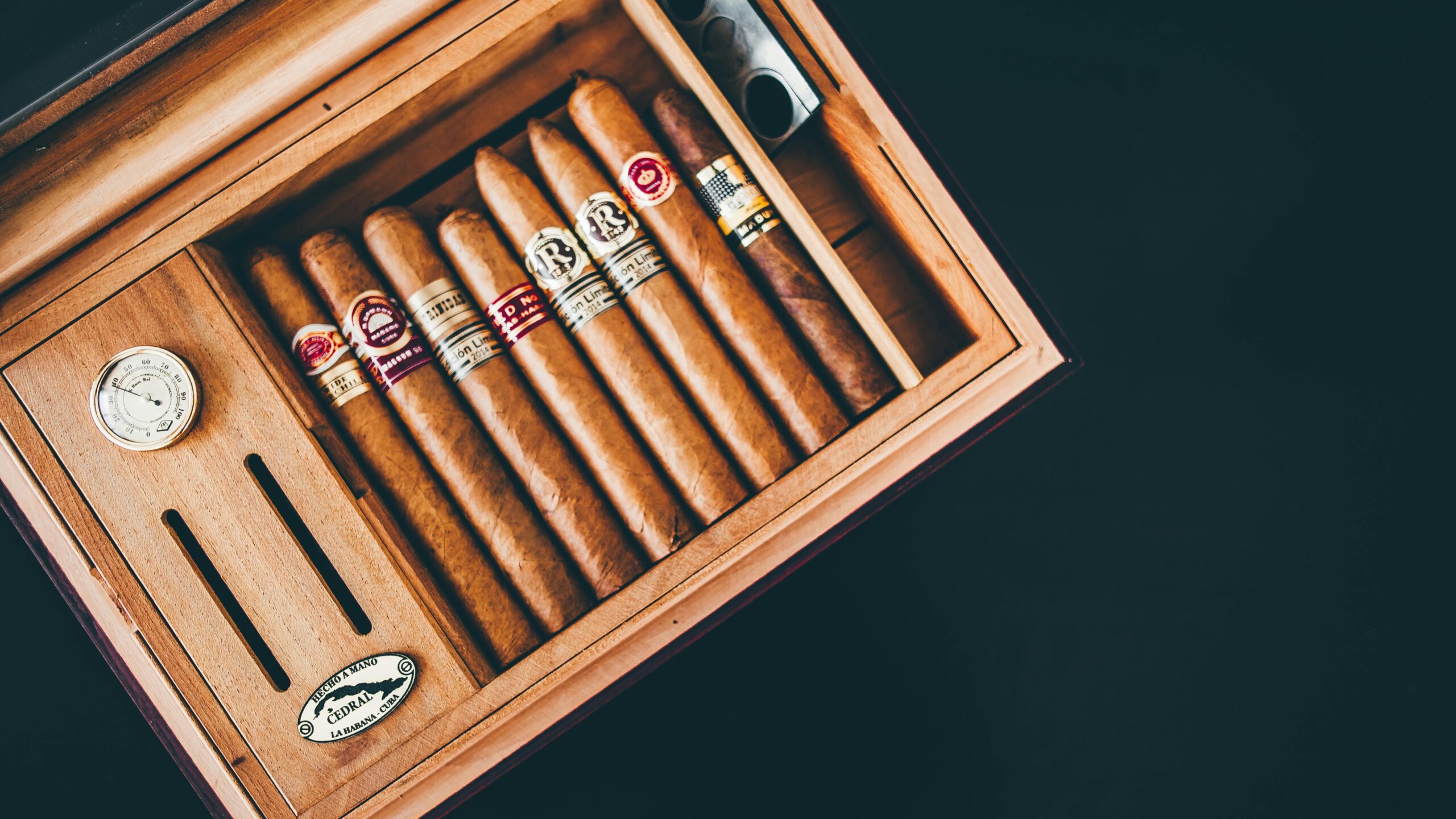A cigar humidor is more than just a storage box. For cigar enthusiasts, it’s a way to preserve the flavor and quality of cigars while showcasing a passion for the craft. Whether storing a small collection in a wooden box or maintaining a walk-in cabinet stocked with premium tobacco, a humidor ensures cigars stay fresh, flavorful, and ready to enjoy.
Without proper storage, cigars dry out, lose flavor, or even attract pests. A humidor controls the environment to prevent these issues, keeping your cigars in peak condition. If you’ve ever wondered what a cigar humidor does, how it works, and what to look for when buying one, this guide will break it down step by step.
What Is a Cigar Humidor?
At its core, a cigar humidor is a container or space that regulates humidity and temperature to protect cigars. Cigars are made from delicate tobacco leaves that require specific conditions to retain their flavor and aroma. A humidor creates this ideal environment.
The word “humidor” comes from “humid,” reflecting its role in maintaining moisture, and the suffix “-idor,” meaning a place for something. Humidors come in all shapes and sizes, from small travel cases to entire rooms built for serious collectors.
What Are Humidors Made Of?
The materials used in humidors play a big role in their effectiveness:
- Spanish Cedar: The most common material for humidor interiors, Spanish cedar helps control humidity and naturally repels pests like tobacco beetles. It also adds a subtle aroma that complements cigars.
- Other Materials: Modern humidors might feature metal, carbon fiber, leather, or plastic. While these materials may look sleek, they often lack the moisture-regulating properties of cedar.
Function of a Humidor
A humidor serves two critical purposes:
- Maintains Stable Humidity: Cigars are best stored at a relative humidity of around 70%. A humidor prevents them from drying out or becoming too moist.
- Preserves Flavor and Aroma: Cigars stored at the right humidity retain their natural oils, ensuring a smooth and enjoyable smoke.
What Happens Without Proper Humidity?
Improper storage can ruin cigars:
- Dry Cigars: These burn too quickly, produce harsh flavors, and often crack.
- Overly Moist Cigars: These can develop mold or attract pests like tobacco beetles.
Key Components of a Humidor
To achieve the ideal environment, humidors rely on a few essential components:
- Seal: A tight seal prevents air exchange, keeping the internal conditions stable.
- Hygrometer: This device measures the humidity level, so you know when adjustments are needed.
- Thermostat: Monitoring the temperature ensures cigars stay safe from heat damage or pest infestations.
Types of Cigar Humidors
Humidors come in various shapes and sizes, each suited for different needs. Whether you’re a casual smoker or a dedicated collector, there’s a humidor for you.
Desktop Humidors
- Overview: Small wooden boxes with a single chamber, perfect for beginners or casual smokers.
- Capacity: Typically holds 20–50 cigars.
- Pros: Affordable, easy to maintain, and a great introduction to cigar storage.
Cabinet Humidors
- Overview: Furniture-like units that can store hundreds of cigars.
- Who It’s For: Serious collectors or those with large cigar inventories.
- Special Features: Often include multiple drawers and shelves for organized storage.
Travel Humidors
- Overview: Compact, portable cases designed for cigar enthusiasts on the go.
- Capacity: Usually holds 5–20 cigars.
- Pros: Keeps cigars fresh during trips, ideal for vacations or business travel.
Specialty Humidors
- Examples: Pocket-sized humidors, car humidors, and leather storage kits.
- Who It’s For: Enthusiasts seeking unique or specific storage solutions.
How Does a Cigar Humidor Work?

A humidor creates a controlled environment to keep cigars at the perfect balance of moisture and temperature. The key is consistency—fluctuations in humidity or temperature can damage cigars.
Humidification System
The humidification system releases moisture into the air, ensuring cigars remain plump and flavorful. This is typically achieved using a humidifier filled with distilled water or a specialized solution. The target humidity is around 70%.
Hygrometer
A hygrometer measures the humidity level inside the humidor. If the reading drops below 65%, it’s time to add moisture. Regular monitoring ensures cigars are always stored in the best conditions.
Thermostat
Temperature matters just as much as humidity. A thermostat tracks the internal temperature, which should stay close to 70°F. Too much heat can dry out cigars or encourage tobacco beetles, especially in warmer climates.
Pro Tip: If you live in a humid area, you may need less humidification, while dry climates often require more frequent adjustments.
How to Use a Cigar Humidor
Setting up and maintaining a humidor isn’t difficult, but it does require attention to detail. Proper care ensures your cigars stay fresh and flavorful for years.
Setting Up a Humidor
- Calibrate the Hygrometer: Use a salt test or pre-calibrated hygrometer to ensure accurate readings.
- Prepare the Humidifier: Fill it with distilled water or a humidification solution. Never use tap water, as it can cause mold.
- Season the Humidor: Before adding cigars, wipe the interior with a damp cloth and leave a dish of distilled water inside for 24–48 hours. This helps the wood absorb moisture and stabilize humidity levels.
Maintaining a Humidor
- Check Levels Regularly: Monitor humidity and temperature every two weeks. Adjust the humidification system as needed.
- Rotate Cigars: Move cigars around occasionally to ensure even humidity distribution.
- Avoid Overcrowding: Give your cigars room to “breathe” for consistent moisture levels.
FAQs

Why Do I Need a Humidor?
Without a humidor, cigars lose their flavor and freshness quickly. A humidor ensures they stay in the best possible condition.
What’s the Ideal Humidity for Cigars?
70% is the standard, though some enthusiasts prefer slightly lower levels for specific cigars.
Can I Use Tap Water in My Humidor?
No. Tap water contains minerals that can clog the humidification system and promote mold growth. Always use distilled water.
How Often Should I Check My Humidor?
Check it every two to three weeks to ensure consistent conditions.
Do Travel Humidors Work as Well as Larger Ones?
Travel humidors are designed for short-term storage and work well on the go, but lack the capacity and precision of larger humidors.
Final Thoughts
A cigar humidor is an essential tool for any cigar enthusiast. It protects your cigars from dryness, excess moisture, and pests while preserving their flavor and aroma. Whether you’re just starting out or have been collecting cigars for years, investing in a good humidor will enhance your smoking experience.
With proper care and regular maintenance, your cigars will always be ready to enjoy—fresh, flavorful, and just as they should be.
